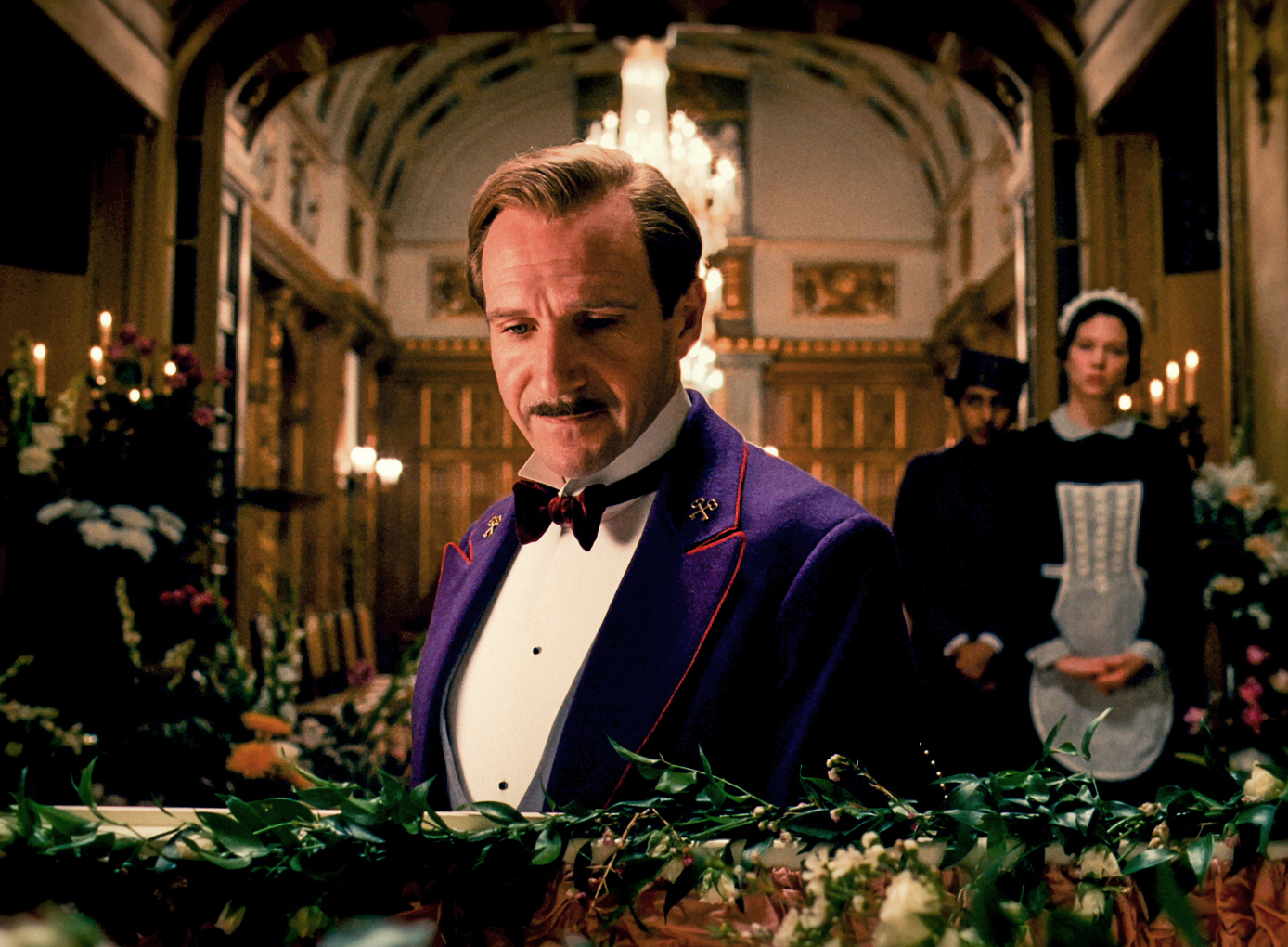The Grand Budapest Hotel
Opens Fri., March 14 at Guild 45th, Pacific Place, and Lincoln Square. Rated R. 100 minutes.
Some filmmakers become genres unto themselves. A “Wes Anderson movie” very quickly came to mean something specific, regardless of its definition as coming-of-age picture (Rushmore), Salingeresque family comedy (The Royal Tenenbaums), or animated kiddie fare (Fantastic Mr. Fox). If you’ve absorbed the storybook Anderson style, you won’t find too many surprises in The Grand Budapest Hotel, his eighth feature. But you will find a disciplined silliness—and even an occasional narrative shock—that vaults this movie beyond the overdeveloped whimsy that has affected Anderson’s work since The Life Aquatic With Steve Zissou.
By the time of its 1968 framing story, the Grand Budapest Hotel has been robbed of its gingerbread design by a Soviet (or some similarly aesthetically challenged) occupier—the first of the film’s many comments on the importance of style. A writer (Jude Law) gets the hotel’s story from its mysterious owner, Zero Moustafa (F. Murray Abraham, a lovely presence). Zero takes us back between world wars, when he (played now by Tony Revolori) began as a bellhop at the elegant establishment located in the mythical European country of Zubrowka. Dominating this place is the worldly Monsieur Gustave, the fussy hotel manager (Ralph Fiennes, in absolutely glorious form), a man given to reciting poetry and dousing himself in a fruity cologne called “L’air du panache.” The death of one of M. Gustave’s elderly ladyfriends (Tilda Swinton) leads to a wildly convoluted tale of a missing painting, resentful heirs, a prison break, and murder. Along the way Zero meets a comely confectioner (Saoirse Ronan), allowing the writer/director to prove that a pastry shop is as ideal a Wes Anderson location as a continental hotel.
Adrien Brody and Willem Dafoe play fascist villains, and Edward Norton is a fumbling policeman. Some of Anderson’s other regulars—Bill Murray, Jason Schwartzman, Owen Wilson—flash by in cameos. All are in service to a project so steeped in Anderson’s velvet-trimmed bric-a-brac we might not notice how rare a movie like this is: a comedy that doesn’t depend on a star turn or a high concept, but is a throwback to the sophisticated (but slapstick-friendly) work of Ernst Lubitsch and other such classical directors. In films like this, behavior and personal elan are the currency that matters, a triumph that outlives the unpleasantness of dictators and storm troopers—as evidenced by the way the aged Zero still speaks worshipfully about his natty mentor. In a delightful way, Anderson is making the case for the value of his own moviemaking approach. Yes, he spritzes “L’air du panache” over his work, but in this case the combination of playfulness and gravity makes The Grand Budapest Hotel linger in the air long after it’s is over.
film@seattleweekly.com







